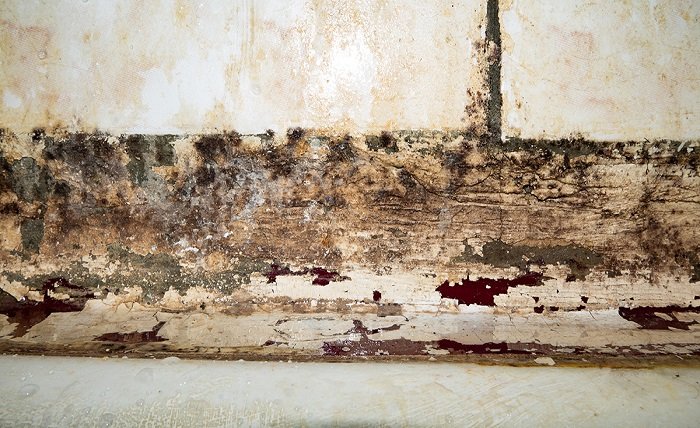Water damage is stressful. Pipes burst. Roofs leak. Mold spreads fast. Your belongings get ruined. Your health can even be at risk. If you’re renting and this happens, don’t panic. Contact a water damage lawyer who understands tenant rights in Los Angeles.
Water damage in apartments is common. Old buildings. Poor maintenance. Negligent landlords. When landlords don’t handle it, tenants suffer. You don’t have to live in unsafe conditions. You have legal options.
Why Water Damage is a Serious Problem
Water damage isn’t just about wet floors. It spreads. It weakens walls, ceilings, and floors. It creates mold. It damages furniture, clothing, and electronics.
Health risks are real. Mold exposure can cause coughing, allergies, headaches, and worse. Prolonged dampness leads to structural dangers, too.
When landlords ignore leaks or flooding, tenants pay the price. That’s why the law steps in.
Who Is Responsible for Water Damage in Rentals?
In most cases, the landlord is responsible. California law requires landlords to provide “habitable” housing. That means safe and livable conditions. Water damage makes a unit uninhabitable.
Landlord duties include:
- Fixing plumbing leaks quickly
- Repairing roof damage that causes water intrusion
- Ensuring proper drainage to prevent flooding
- Addressing mold caused by water damage
If they fail, they can be held liable for your losses.
Common Causes of Water Damage in Apartments
Water damage comes from many sources. Some are sudden. Others are slow leaks that grow worse over time.
The most common causes include:
- Burst pipes
- Leaky roofs
- Faulty plumbing
- Overflowing toilets or sinks
- Broken water heaters
- Flooding from heavy rains
Some issues are preventable with proper maintenance. When landlords skip repairs, tenants suffer the consequences.
Steps to Take Immediately After Water Damage
Act fast. Water damage spreads quickly. Here’s what to do:
- Notify your landlord in writing. Call first, but always follow up with an email or text. Keep proof.
- Document the damage. Take photos and videos of everything affected. Note the date and time.
- Protect your belongings. Move items away from the damaged area if it’s safe.
- Check your lease. Some agreements outline specific repair responsibilities.
- Call a water damage lawyer. They can explain your rights and guide your next steps.
Tenant Rights After Water Damage
You don’t have to live in unsafe housing. California law protects tenants when landlords fail to act. Your rights may include:
- The right to timely repairs
- The right to a rent reduction if part of your unit is uninhabitable
- The right to break your lease if the unit is unsafe
- The right to compensation for damaged belongings
- The right to relocation assistance in certain cases
A lawyer can help enforce these rights.
Rent Reductions and Withholding Rent
If water damage makes part of your apartment unusable, you may qualify for a rent reduction. For example:
- Bedroom ruined by mold? You shouldn’t pay full rent.
- Kitchen flooding makes cooking impossible? You deserve a discount.
In severe cases, tenants can withhold rent until repairs are made, but be careful. This must be done legally. A water damage lawyer can guide you to avoid eviction risks.
Relocation Rights
Sometimes repairs take weeks or months. If your home is unsafe, you might have to move out temporarily. In certain situations, landlords must pay relocation assistance.
That includes:
- Hotel costs
- Moving expenses
- Rent a temporary place
You shouldn’t be stuck covering these costs yourself.
Recovering Compensation for Damaged Belongings
Water damage doesn’t just hurt the apartment. It ruins your property, too. Clothes. Furniture. Electronics. Important documents.
Landlords can be held responsible for those losses—especially if negligence caused the damage. For example:
- A landlord ignored a leaky roof for months.
- A broken pipe was never fixed despite repeated complaints.
In these cases, you may recover compensation for your destroyed belongings.
Health Concerns: Mould After Water Damage
Mould is one of the most dangerous results of water damage. It grows fast in damp spaces. Bathrooms, ceilings, walls, and carpets are common spots.
Health effects include:
- Allergies
- Asthma attacks
- Coughing
- Skin irritation
- Headaches
If mould appears after water damage, your landlord must act quickly. If they don’t, they can be held legally accountable.
Why You Need a Water Damage Lawyer
You might think you can handle it alone, but landlords often push back. They deny responsibility. They blame tenants. They delay repairs.
A water damage lawyer can:
- Review your lease for legal protections
- Demand repairs through formal letters
- Negotiate rent reductions or relocation assistance
- File claims for damaged property
- Represent you in court if necessary
With a lawyer, you have leverage. Without one, landlords may ignore your complaints.
How to Protect Yourself as a Tenant
Be proactive. Protect yourself before water damage happens.
Tips:
- Always report leaks immediately in writing.
- Keep records of maintenance requests.
- Save receipts for any expenses related to water damage.
- Take regular photos of your apartment’s condition.
These steps build evidence if legal action becomes necessary.
Final Thoughts
Water damage isn’t just inconvenient. It’s dangerous. It destroys property. It harms your health. And it makes apartments unlivable.
Tenants have rights. You don’t need to stay in unsafe housing. If your landlord ignores the problem, you can fight back.
Call a water damage lawyer. They’ll protect your rights, demand fair treatment, and hold landlords accountable.
Your home should be safe. Your belongings should be protected. And your landlord should be responsible.
Don’t settle for less.
